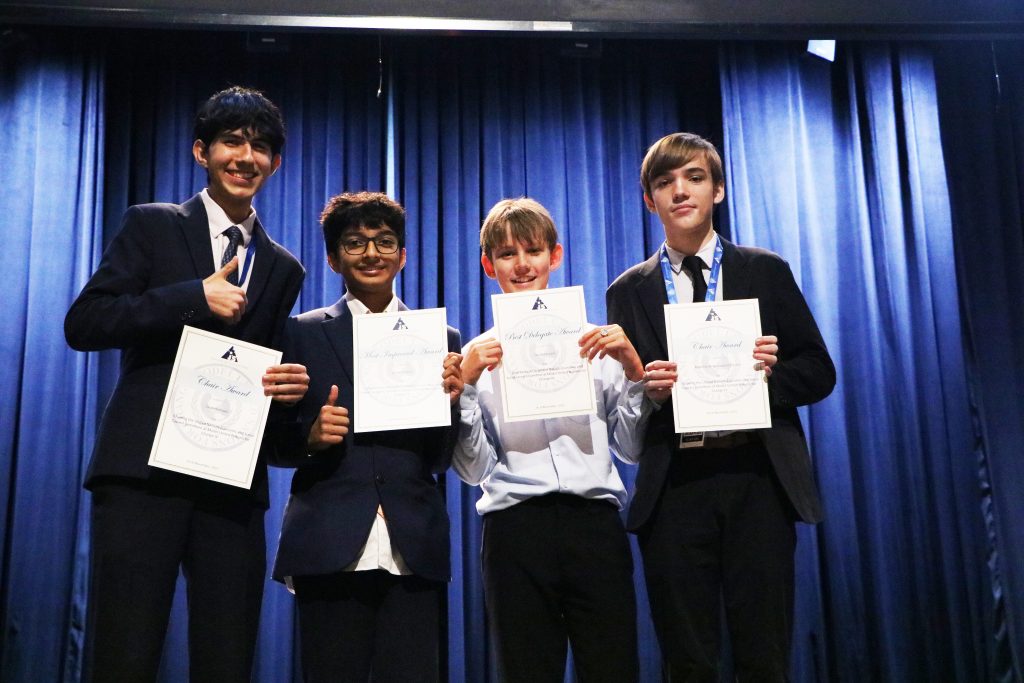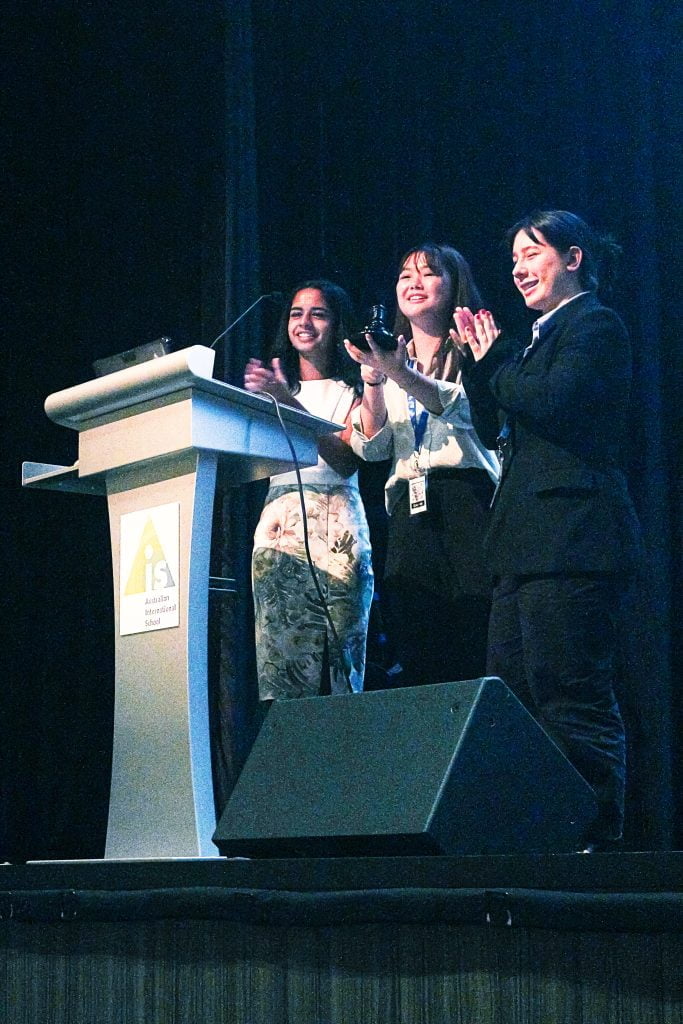- Sponsored Content
 Model United Nations (MUN) conferences provide a distinctive platform for students to simulate diplomatic scenarios, representing nations and engaging in fervent debates on global issues. Recently concluded, the MUN4C conference, orchestrated by three committed Year 11 students – Yujin, Beth, and Kiana – not only showcased the collaborative efforts of young minds but also made a significant contribution to charitable causes.
Model United Nations (MUN) conferences provide a distinctive platform for students to simulate diplomatic scenarios, representing nations and engaging in fervent debates on global issues. Recently concluded, the MUN4C conference, orchestrated by three committed Year 11 students – Yujin, Beth, and Kiana – not only showcased the collaborative efforts of young minds but also made a significant contribution to charitable causes.
AIS’ Principal, Adam Patterson acknowledged the conference’s impact, noting its role in fostering critical thinking, research, public speaking skills, and a deeper understanding of global affairs and diplomacy. He expressed gratitude to the organising committee, stating, “I would like to express my sincere appreciation to the Model United Nations (MUN) organising committee for their outstanding efforts in making this conference possible. Your hard work and dedication have provided us with a remarkable platform for diplomacy and global learning. Thank you for your invaluable contributions to this event.”
The conference, featuring nine international schools in Singapore, aimed to enhance participants’ diplomatic skills and support the International Committee of the Red Cross and the Singapore Red Cross through a substantial donation. Despite challenges with a smaller organising team, the trio ensured meticulous planning for the event’s seamless execution. Yujin served as the Secretary-General, with Beth and Kiana as Deputy Secretary-Generals.
 Collaborative efforts
Collaborative efforts
Reflecting on the challenges faced during the planning process, Yujin shared, “We encountered numerous challenges while organising this event. Hosting the MUN conference demanded a significant amount of time and effort, so it was very important for us to balance our school life and MUN commitments.” The trio navigated tasks such as managing finances, coordinating with charities, ordering MUN materials, and confirming various details. Beth added, “Making a weekly schedule helped me a lot in managing both my school life and MUN commitments.”
The MUN4C conference comprised eight committees, each addressing critical topics from the impact of digital technology on women’s rights to measures for emergency care provision. Participants engaged in collaborative efforts to propose resolutions on issues such as ending violence against the LGBTQ community and legislating for cross-border international cybercrime.
Kiana highlighted the conference’s role in raising awareness about global issues, stating, “We believe that researching these global affairs, addressing them at the conference, and discussing future actions that nations should take will help raise awareness of these global issues.” She shared her most memorable moment, expressing gratitude for the support of her fellow organisers, Yujin and Beth, stating, “This whole experience would not have been so rewarding, fulfilling, and fun if it weren’t for them.”
The financial success of the conference extended beyond diplomatic discussions. The funds raised for the Red Cross organisations will contribute to global crisis alleviation efforts. While the exact utilisation remains unspecified, the organisers are optimistic that addressing global affairs through MUN conferences can have a lasting impact on future generations.
In conclusion, the MUN4C conference stands as a testament to the power of student-led initiatives in nurturing diplomacy, critical thinking, and global awareness. The dedication of the organising committee and the participation of international schools in Singapore underscore the significance of such events in shaping the perspectives of future leaders.
Find out more about AIS, contact us here.



 Collaborative efforts
Collaborative efforts




